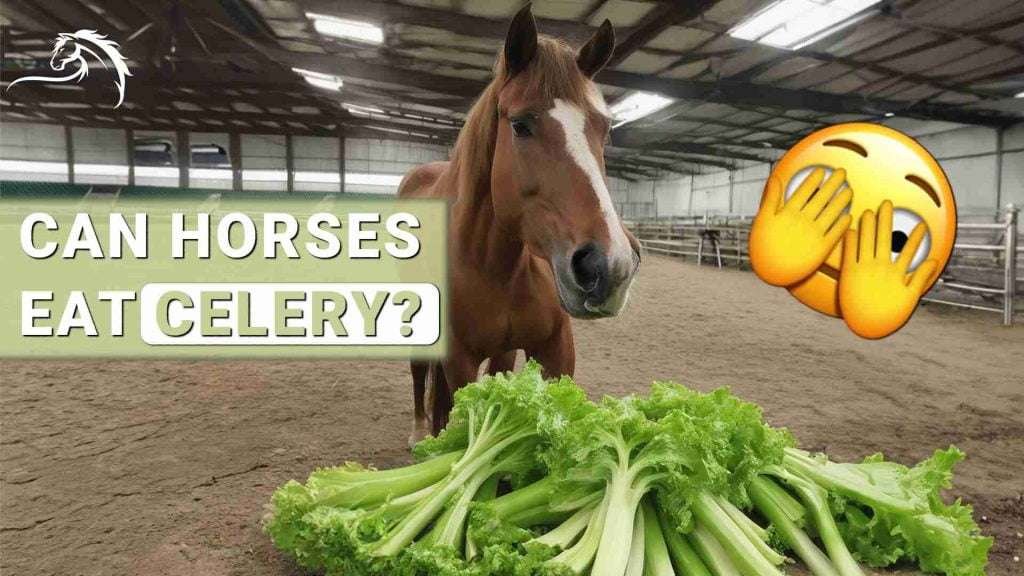The short answer is yes, horses can eat bananas. When it comes to the dietary needs of horses, owners must understand what foods are safe and appropriate for their equine companions. Among the various fruits available, bananas often raise questions among horse owners as bananas contain many nutritional elements.
Can Horses Safely Eat Bananas?
The straightforward answer is yes, horses can eat bananas but with some precautions. Bananas, scientifically known as Musa, they are rich in essential nutrients such as:
- Bananas are renowned for their potassium content. Potassium plays a crucial role in maintaining proper muscle function and nerve transmission in horses. It helps regulate heart rhythm and supports healthy muscle contractions, which are essential for horses engaged in physical activities.
- Bananas contain a moderate amount of vitamin C, which acts as an antioxidant in the horse’s body. Antioxidants help protect cells from oxidative stress and support a healthy immune system. While horses can produce their vitamin C, supplementation from dietary sources like bananas can provide additional support.
- Vitamin B6, also known as pyridoxine, is another important nutrient found in bananas. It plays a vital role in protein metabolism, aiding in the conversion of food into energy. Vitamin B6 is also involved in the production of red blood cells, which are responsible for carrying oxygen throughout the horse’s body.
- Magnesium is a mineral that plays a crucial role in various bodily functions, including muscle and nerve function, energy production, and bone health. Bananas contain a modest amount of magnesium, which can contribute to the overall well-being of horses.
-
Bananas are a good source of dietary fiber, which is essential for maintaining a healthy digestive system in horses. Fiber aids in proper digestion and helps regulate bowel movements, preventing issues such as constipation. Including bananas in moderation can provide a natural source of fiber to support gastrointestinal health.
-
Considering the nutritional content of bananas, horse owners can evaluate the potential benefits they offer when included in the horse’s diet. However, it’s crucial to keep in mind the sugar content of bananas and the need for moderation in feeding practices.
The natural sugars present in bananas can be a concern, as horses are sensitive to high-sugar diets, which can lead to various health issues, it’s important to understand their unique digestive system. Horses are herbivores and have a specialized digestive tract designed to process plant-based foods, they primarily consume forages such as hay and grass.
Related:
Benefits
Despite the need for moderation. Bananas offer several essential nutrients that can support the overall health and well-being of horses. For instance, bananas are a good source of potassium, which plays a vital role in muscle and nerve function. Additionally, they contain vitamin C which acts as an antioxidant and supports the immune system the dietary fiber found in bananas can aid in maintaining a healthy digestive system in horses. The fiber helps regulate bowel movements and can contribute to better digestion. Bananas as an occasional treat can provide variety to a horse’s diet and add a palatable option to their feeding routine.
Risks
What Makes Bananas Unsafe for Horses? One of the main concerns is the high sugar content of bananas. Horses have a limited ability to process excessive amounts of sugar, and a diet high in sugar can lead to issues such as insulin resistance, laminitis, and weight gain. Limiting the amount and frequency of banana consumption can help prevent the negative impacts of excessive sugar intake. It’s also recommended to consult with a veterinarian or equine nutritionist to ensure that the horse’s overall diet is balanced and appropriate for its specific needs. I should also be considered that horses of different ages groups have different capability of consuming bananas.
Can horses eat Banana skin/ Peels?
Yes, horses can eat banana peels. Banana peels are a good source of fiber and potassium, which are both important nutrients for horses. However, it is important to remove any stickers or wax from the banana peel before feeding it to your horse. You should also only feed your horse banana peels in moderation, as too much fiber can cause digestive problems.
Bananas Unsafe for Some Horses
While bananas can be a healthy treat for many horses and horses can eat bananas with joy there are specific conditions in which feeding bananas may not be advisable. Here are some conditions that may make bananas unsafe for certain horses:
Diabetic horses
Horses with diabetes have difficulty regulating their blood sugar levels. Since bananas contain natural sugars, they can potentially contribute to elevated blood glucose levels in diabetic horses. Horse owners must consult with their veterinarian and follow a specific diet plan tailored to the individual needs of diabetic horses, which may involve restricting or avoiding high-sugar treats like bananas.
Horses with digestive problems
Horses with pre-existing digestive issues, such as gastric ulcers or gastrointestinal sensitivities, may not tolerate bananas well. The high sugar content and natural acidity of bananas can potentially aggravate these conditions and lead to discomfort or exacerbation of digestive symptoms. It is essential to work closely with a veterinarian to determine the appropriate diet for horses with digestive problems.
Horses with kidney problems
Bananas are a source of potassium, and horses with kidney problems may have difficulty processing excessive potassium levels. Elevated potassium intake can strain the kidneys and potentially worsen kidney function in horses with pre-existing kidney issues. Horse owners should consult their veterinarian for guidance on managing the diet of horses with kidney problems and whether bananas should be limited or avoided.
How to Safely Feed Bananas to Horses
While bananas can be a tasty and nutritious treat for horses, it’s important to follow some guidelines to ensure their safe consumption. Here are some tips on how to safely feed bananas to horses:
Preparation
Before offering a banana to your horse, make sure it is ripe and free from any mold or signs of spoilage. Remove the peel and cut the banana into small, bite-sized pieces to make it easier for your horse to chew and swallow.
Moderation
Like any treat or supplement, bananas should be fed to horses in moderation. While horses may enjoy the sweet taste, it’s important not to overfeed them with bananas as excessive consumption can lead to an imbalance in their diet. Aim to provide small amounts of bananas as an occasional treat, rather than a regular part of their daily feed.
Observation
When introducing bananas to your horse’s diet, closely monitor their response and digestion. Some horses may have sensitivities or allergies to certain foods, including bananas. Watch for any signs of digestive upset, such as diarrhea or changes in appetite, and consult with your veterinarian if you have any concerns.
Variety and Balance
Remember that bananas should not replace a balanced equine diet. Horses require a diverse range of nutrients from forage, grains, and supplements to meet their nutritional needs. Use bananas as a supplementary treat or reward, but ensure their overall diet is well-balanced and meets their specific dietary requirements.
Safe Environment
When offering bananas to your horse, make sure they are in a safe and controlled environment. Avoid feeding them in situations where they could accidentally choke or compete with other horses for the treat. Additionally, always provide fresh and clean drinking water to your horse to ensure proper hydration.
Considerations:
Horse size and Activity level
The amount of bananas a horse can safely consume depends on its size and activity level. Larger horses may be able to tolerate slightly larger quantities, while smaller horses should be given smaller portions. Additionally, highly active horses may have a higher caloric requirement and may be able to handle slightly more bananas compared to sedentary horses. Adjust the amount accordingly to meet your horse’s individual needs.
Age Recommendations
| Age Range Banana | a Feeding Recommendations |
|---|---|
| Foal (0-6 months) | – Not recommended: Avoid feeding bananas until weaned and on a solid diet. |
| Weanling (6-12 months) | – Limited treats: Introduce bananas in small portions, monitor tolerance, and ensure a balanced diet. |
| Yearling (1 year) | – Moderation: Continue offering bananas as treats, but focus on a balanced diet with appropriate nutrients. |
| Adult (2 years +) | – Occasional treat: Feed bananas sparingly, adjusting quantity based on size, health, and activity. |
| Senior (15 years +) | – Mash or cut: Consider dental issues and health conditions, mash or cut bananas for easier consumption if needed. |
Conclusion:
In conclusion, bananas can be a safe and nutritious treat for horses when fed in moderation and with care.
Key Takeaways:
- Bananas can be a safe and nutritious treat for horses when fed in moderation.
- Cut bananas into small pieces to make them easier to eat and digest.
- Introduce bananas slowly to monitor your horse’s response and prevent any adverse reactions.
- Horses with certain health conditions, such as diabetes or digestive problems, should avoid consuming bananas.
- Prioritize a well-balanced diet for your horse and use bananas as an occasional supplement or reward.





